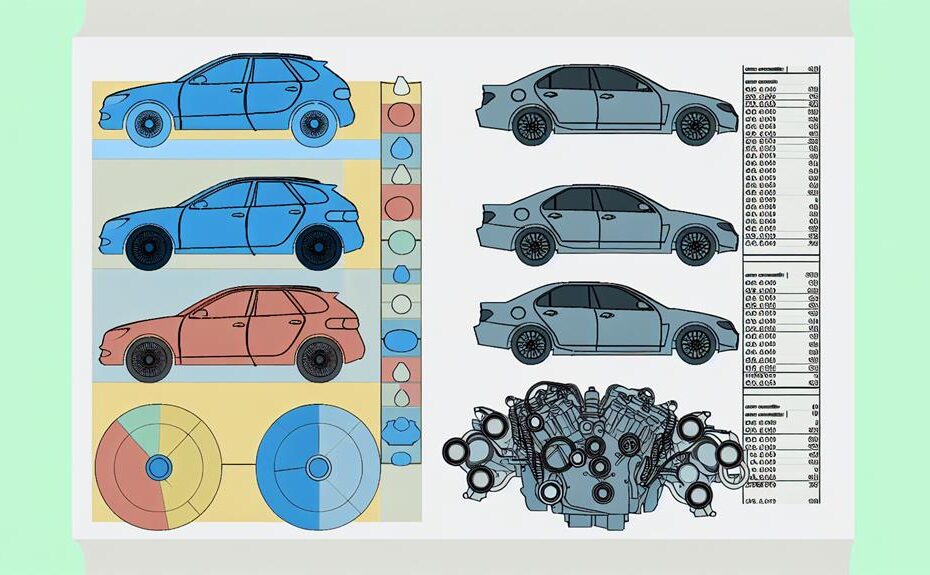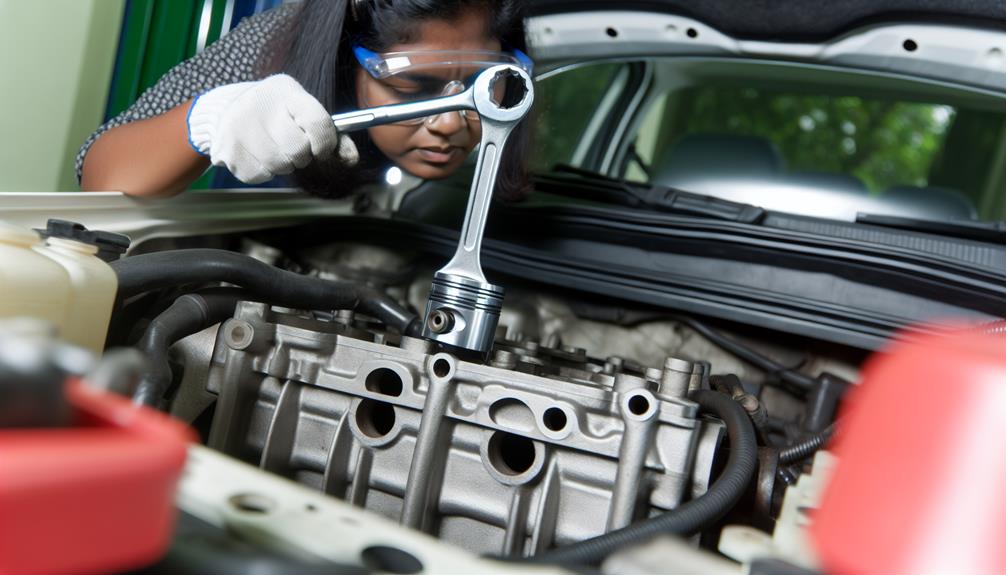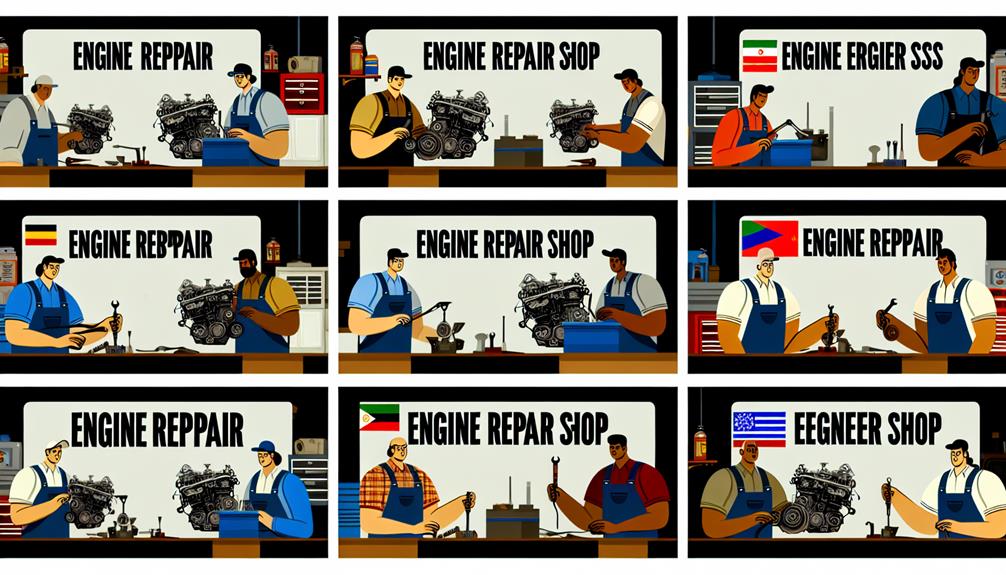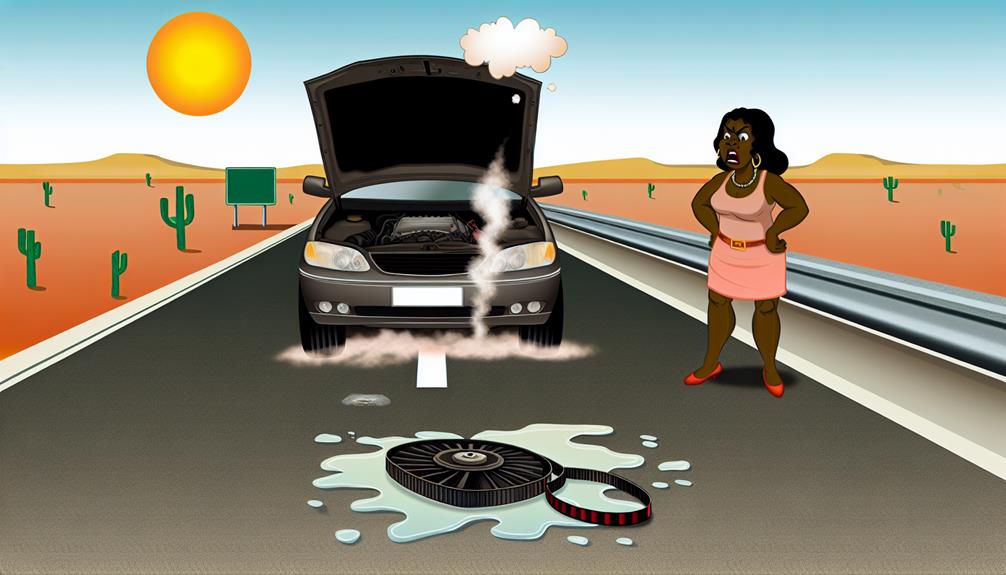When it comes to maintaining your vehicle, there may come a time when you need to address the issue of engine repair. While we all hope for smooth rides and trouble-free journeys, it's no secret that engines can sometimes encounter problems along the way.
However, understanding the potential costs involved doesn't have to be a daunting task. In this comprehensive car model guide, we'll shed light on the engine repair costs for various types of cars, from sedans to luxury vehicles and even electric cars.
So, buckle up and get ready to explore the world of engine repairs, because knowing what to expect can save you both time and money in the long run.
Key Takeaways
- The make and model of a car significantly influence the repair cost, with luxury sedans and sports cars generally having higher repair expenses.
- The extent of engine damage and the labor required for repair also impact the cost, regardless of the car type.
- SUVs and hatchbacks have their own unique factors affecting repair costs, such as the type of SUV, age and mileage, engine design, and size.
- Electric vehicles have additional costs related to battery replacement and motor repair, which should be considered when evaluating the overall cost of owning an electric car.
Engine Repair Cost for Sedans
The cost of repairing the engine in a sedan can vary depending on the specific make and model, as well as the extent of the damage and the labor required for the repair. When it comes to engine repair costs for sedans, there are several factors that come into play.
The average engine repair cost for sedans can range from $500 to $2,000, depending on these factors.
Firstly, the make and model of the sedan greatly influence the cost of engine repair. Luxury sedans tend to have higher repair costs due to their more advanced and complex engines. On the other hand, economy sedans often have simpler engines that are easier and cheaper to repair.
Secondly, the extent of the damage to the engine plays a significant role in determining the cost. Minor repairs such as fixing a small oil leak or replacing a faulty sensor will be less expensive compared to major repairs like a blown head gasket or a damaged piston.
Lastly, the labor required for the repair also affects the cost. The expertise and experience of the mechanic, as well as the local labor rates, can vary significantly. This can result in variations in the cost of engine repair for sedans from one location to another.
Engine Repair Cost for SUVs
When it comes to engine repair costs for SUVs, there are several factors that can influence the overall cost, just like with sedans.
SUVs are known for their power and capability, but that comes at a price when it comes to engine repairs.
One of the main factors that can affect the cost is the type of SUV you own. Different SUV models have different engine sizes and complexities, which can impact the cost of repairs.
Additionally, the age and mileage of your SUV can also play a role in determining the cost. Older SUVs with higher mileage may require more extensive repairs, which can increase the overall cost.
Furthermore, the type of engine issue you're experiencing can also affect the repair cost. Common engine problems for SUVs include issues with the fuel system, ignition system, and cooling system.
Lastly, it's worth noting that the cost of engine repairs for SUVs can vary compared to other types of vehicles. For example, the engine repair cost for pickup trucks and minivans may differ due to differences in engine design and size.
Engine Repair Cost for Hatchbacks
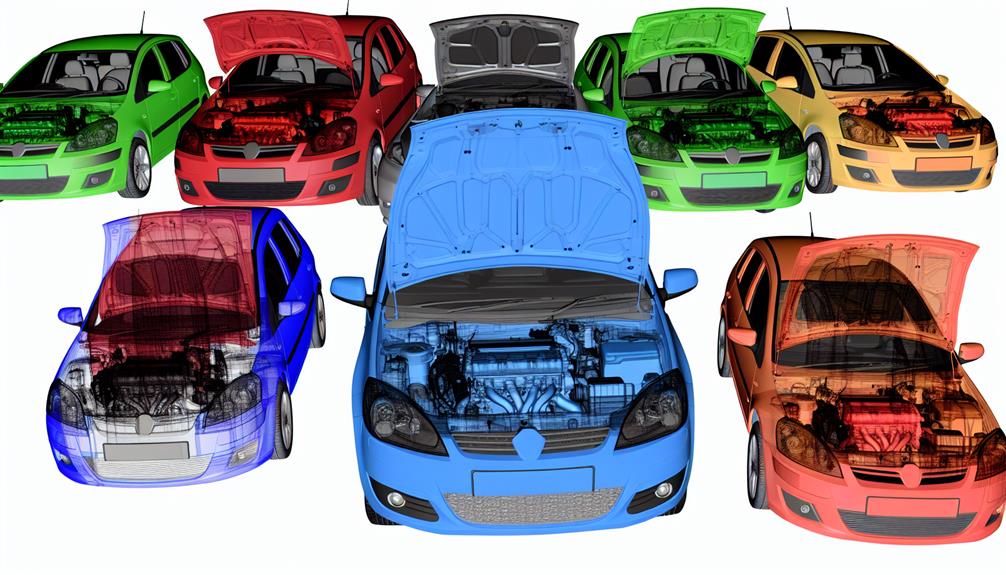
Hatchbacks offer a cost-effective option for commuting, but engine repair costs can vary depending on various factors. When it comes to engine repair costs for hatchbacks, it's important to consider the size and type of the hatchback.
Compact hatchbacks typically have smaller engines, which can result in lower repair costs compared to larger vehicles. The cost of repairing a compact hatchback's engine can range from $500 to $2,000, depending on the extent of the damage and the specific make and model.
On the other hand, sports hatchbacks often come with high-performance engines, which can lead to higher repair costs. The engine repair cost for sports hatchbacks can range from $1,500 to $5,000 or more, depending on the complexity of the engine and the availability of parts.
It's also worth noting that the cost of engine repairs can be influenced by factors such as labor rates, geographic location, and the reputation of the repair shop. To ensure that you're getting the best value for your money, it's recommended to compare prices from different repair shops and consider seeking out specialized mechanics for hatchbacks.
Engine Repair Cost for Luxury Cars
Luxury cars come with a higher price tag, and as a result, engine repair costs for these vehicles can also be significantly more expensive. When it comes to luxury cars, the cost of repairing the engine can vary depending on several factors. Here are four key factors that can affect the engine repair cost for luxury cars:
- Make and Model: Different luxury car brands may have varying engine designs and components, resulting in different repair costs. For example, repairing the engine of a high-end Bentley or Rolls-Royce may be more expensive compared to a luxury car from a mainstream brand.
- Sports Cars: Luxury sports cars often have high-performance engines that require specialized parts and expertise for repair. These factors can drive up the repair cost significantly. The complexity and performance-oriented nature of sports car engines contribute to the higher expense.
- Vintage Cars: Vintage luxury cars can be a passion for many car enthusiasts. However, repairing the engine of a vintage luxury car can be challenging due to the limited availability of parts and specialized knowledge required. This scarcity can result in higher engine repair costs for vintage luxury cars.
- Technological Advancements: Many luxury cars come equipped with advanced technologies, such as hybrid or electric powertrains. Repairing these engines often requires specialized training and equipment, making the repair costs higher than traditional internal combustion engines.
Considering these factors, it's essential for luxury car owners to be prepared for potentially higher engine repair costs. Regular maintenance and servicing can help prevent major engine issues and minimize repair expenses.
Engine Repair Cost for Electric Vehicles
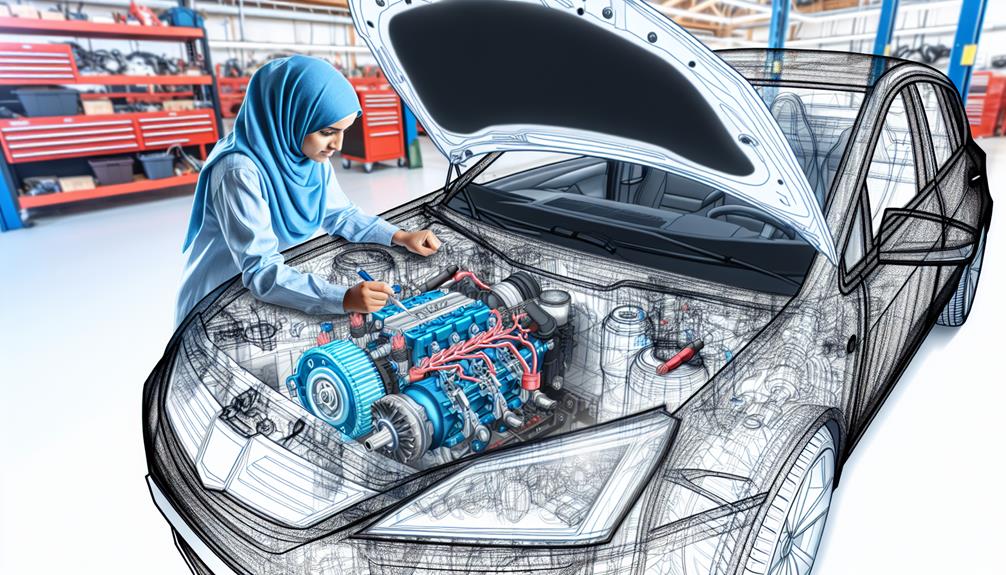
The cost of repairing the engine in electric vehicles can vary depending on several factors. When it comes to electric vehicles, the two main components that may require repair or replacement are the battery and the motor. Let's take a closer look at the potential costs associated with these components.
Firstly, the battery replacement cost for electric vehicles can be significant. The price of a new battery pack depends on the make and model of the vehicle, as well as the capacity and technology of the battery itself. On average, battery replacements can range from $5,000 to $20,000, with some high-end electric vehicles costing even more.
Secondly, the motor repair cost for electric vehicles can also be a factor to consider. Electric motors are generally reliable and require less maintenance compared to internal combustion engines. However, in the event of a motor failure or damage, the cost of repair or replacement can still be substantial. Motor repair costs can range from $1,000 to $5,000, depending on the complexity of the motor and the specific circumstances of the repair.
To summarize, when it comes to repairing electric vehicles, the cost can vary depending on the battery replacement and motor repair needs. It's important to consider these potential expenses when evaluating the overall cost of owning and maintaining an electric vehicle.
Frequently Asked Questions
What Are the Common Signs or Symptoms of Engine Problems That Car Owners Should Be Aware Of?
You should be aware of common signs or symptoms of engine problems, such as strange noises, poor performance, or excessive smoke. Regular maintenance and following engine maintenance tips can help prevent these issues.
Are Engine Repairs Covered Under Warranty for New or Certified Pre-Owned Vehicles?
Engine repair warranty coverage varies for new or certified pre-owned vehicles. It's important to check the terms and conditions of your warranty to determine if engine repairs are covered. Keep in mind that engine repair cost for used vehicles may not be included in the warranty.
Can Regular Maintenance and Proper Care Help Prevent Expensive Engine Repairs?
Regular maintenance and proper care are crucial in preventing expensive engine repairs. By following the manufacturer's guidelines and servicing your vehicle on schedule, you can minimize the chances of major engine issues and save yourself from costly repairs.
How Long Does It Typically Take to Repair or Replace an Engine?
On average, engine repair time varies depending on several factors. These factors include the severity of the damage, the availability of parts, and the expertise of the mechanic.
Are There Any Alternatives to Engine Repair, Such as Engine Rebuilding or Swapping, That Can Be More Cost-Effective?
Are you wondering if there are alternatives to engine repair that can save you money? Consider the engine rebuilding process, which can restore your engine to its original condition, or engine swapping, which allows you to upgrade to a more powerful engine. Both options offer cost-effective benefits.
Conclusion
In conclusion, when it comes to engine repair costs, it's important to consider the specific car model. Sedans generally have lower repair costs compared to SUVs, luxury cars, and electric vehicles. Hatchbacks also tend to fall on the more affordable side.
As the saying goes, 'A stitch in time saves nine,' regular maintenance and addressing issues promptly can help avoid costly repairs down the road. Remember, staying informed and proactive can save you both money and headaches in the long run.
- How to Close Spark Plug Gap: Expert Tips and Tricks! - May 13, 2024
- How to Perfectly Align Projector Headlights With Halo - May 13, 2024
- How Many Amps Does a Car Horn Draw? Unveiling the Power Requirements - May 13, 2024
